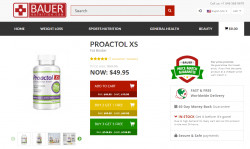Welcome to our review of Natrol DHEA, a popular supplement that aims to support hormone balance and healthy hormone synthesis. In this article, we will explore the potential benefits, risks, and ingredients of Natrol DHEA. Please note that the information provided is based on current scientific knowledge and may be subject to change as further research is conducted.
Key Takeaways:
- Natrol DHEA is a supplement used to support hormone balance.
- There is limited evidence to support the claims of Natrol DHEA regarding sex drive, muscle building, anti-aging, and health conditions.
- DHEA is a hormone produced by the adrenal glands that decreases with age.
- Possible side effects of DHEA supplementation include oily skin, hair loss, stomach upset, high blood pressure, and changes in menstrual cycle.
- Consult with a healthcare professional before considering the use of Natrol DHEA, especially if you have any medical conditions or are taking medications.
What is DHEA and how does it work?
DHEA, or dehydroepiandrosterone, is a hormone produced by the adrenal glands. It acts as a precursor to testosterone and estrogen, two important sex hormones. DHEA levels peak in the mid-20s and gradually decline with age. DHEA supplements, which can be made from wild yam or soy, are thought to increase the levels of these hormones in the body. This has led to claims that DHEA can improve adrenal gland function, strengthen the immune system, slow down age-related changes, provide more energy, improve mood and memory, and enhance bone and muscle strength. However, the scientific evidence supporting these claims is limited and mixed.
While some small studies have reported positive effects of DHEA supplements on aging and mood, there is still much to learn about its long-term use and potential risks. It is important to note that DHEA is a hormone, and altering hormone levels in the body can have complex effects. Therefore, it is recommended to consult with a healthcare professional before starting DHEA supplementation, especially if you have any underlying medical conditions or are taking other medications.
Understanding DHEA production and supplementation
“DHEA levels peak in the mid-20s and gradually decline with age.”
The production of DHEA in the body is influenced by various factors, including age, stress levels, and overall health. As mentioned earlier, DHEA levels naturally decline as we age. This decline has led to the development of DHEA supplements as a means to potentially replenish declining hormone levels.
However, it is important to approach DHEA supplementation with caution. The effects of long-term use and potential risks are still not fully understood. Additionally, there may be individual variations in how the body responds to DHEA supplementation, making it necessary to consult with a healthcare professional for personalized guidance.
Research on DHEA and its benefits
“The scientific evidence supporting these claims is limited and mixed.”
While DHEA supplements have been associated with various health claims, such as improving adrenal gland function and enhancing bone and muscle strength, the scientific evidence supporting these claims is limited and mixed. Some small studies have reported positive effects of DHEA on aging and mood, but larger, more rigorous studies are needed to confirm these findings.
It is also worth noting that the benefits of DHEA supplementation may vary depending on factors such as individual health status, age, and gender. Therefore, it is important to approach DHEA supplementation with a balanced and critical perspective, considering the available evidence and consulting with a healthcare professional.
Potential Benefits of DHEA Supplements
DHEA supplements have been the subject of much discussion, with claims ranging from improving mood and skin appearance to enhancing overall well-being as individuals age. While scientific evidence supporting these claims is limited, there are a few potential benefits associated with DHEA supplementation.
DHEA and Depression
“DHEA supplements may help ease mild to moderate depression.”
Studies have suggested that DHEA supplements may have a positive effect on mild to moderate depression. It is believed that DHEA plays a role in regulating mood, and increasing its levels through supplementation may help alleviate symptoms of depression. However, further research is needed to fully understand the extent of DHEA’s impact on mood disorders.
DHEA and Aging Skin
“DHEA supplements may improve aging skin in elderly individuals.”
Another potential benefit of DHEA supplements is their impact on aging skin. Research suggests that DHEA plays a role in maintaining skin health and elasticity. Some studies have shown that DHEA supplementation can improve skin appearance and reduce signs of aging in elderly individuals. However, it is important to note that the effects may vary and more research is needed to determine the specific mechanisms at work.
While these potential benefits show promise, it is crucial to approach DHEA supplementation with caution. Consulting with a healthcare professional is advised to fully understand the potential risks and benefits, especially if you have any existing medical conditions or are taking medications.
Potential Risks and Side Effects of DHEA Supplements
DHEA supplements, while often marketed as natural and safe, carry certain risks and side effects that must be considered before use. It is important to be aware of the potential adverse reactions and to consult with a healthcare professional before incorporating DHEA supplements into your routine.
One of the common side effects associated with DHEA supplementation is oily skin, which can lead to acne breakouts. Hair loss is also a potential side effect, which may be particularly concerning for individuals who are already experiencing hair thinning or loss. Stomach upset, such as nausea or diarrhea, has been reported by some users of DHEA supplements. It is advisable to take DHEA supplements with food to minimize this risk.
Another potential concern with DHEA supplements is the increase in blood pressure that some individuals may experience. This is particularly important for individuals with preexisting hypertension or cardiovascular conditions. Changes in menstrual cycle have also been reported among women taking DHEA supplements. It is advised to monitor any changes in menstrual patterns and consult with a healthcare professional if any concerns arise.
| Side Effects | Prevalence |
|---|---|
| Oily skin | Common |
| Hair loss | Common |
| Stomach upset | Common |
| High blood pressure | Less common |
| Changes in menstrual cycle | Less common |
It is also important to consider the potential long-term effects of DHEA supplementation. The impact of elevated hormone levels over an extended period is still uncertain, and further research is needed to fully understand the consequences. Additionally, individuals with a history of hormone-sensitive cancers, such as breast, ovarian, or prostate cancer, should exercise caution when considering DHEA supplements. There is concern that DHEA supplementation may stimulate the growth of hormone-sensitive tumors.
In summary, while DHEA supplements may offer potential benefits, it is essential to weigh the risks and side effects. Consultation with a healthcare professional is crucial in determining whether DHEA supplementation is appropriate for your individual circumstances, especially if you have preexisting medical conditions or are taking medications. Being informed about the potential risks and side effects will help you make an educated decision about incorporating DHEA supplements into your health regimen.
DHEA supplements and their impact on weight loss and athletic performance
DHEA supplements have garnered attention in recent years for their potential role in weight loss and athletic performance. However, it is important to understand the current scientific evidence surrounding these claims before considering DHEA supplementation for these purposes.
Several studies have been conducted to investigate the effects of DHEA supplements on weight loss. However, the results have been inconclusive, with some studies showing no significant impact on body weight or fat loss. Therefore, it is crucial to approach claims of DHEA as a weight loss aid with caution and consult with a healthcare professional before incorporating it into a weight loss regimen.
When it comes to athletic performance enhancement, the evidence regarding DHEA supplements is similarly mixed. While some studies have suggested potential benefits in terms of muscle strength and overall athletic performance, others have found no significant improvement. Furthermore, it is worth noting that DHEA supplements are banned by sports organizations due to concerns about unfair advantages and potential health risks.
| Claim | Evidence |
|---|---|
| DHEA supplements for weight loss | Inconclusive results, limited scientific evidence |
| DHEA supplements for muscle strength | Mixed findings, inconclusive evidence |
| DHEA supplements for athletic performance | Conflicting results, banned by sports organizations |
Considering the limited evidence and potential risks associated with DHEA supplementation, it is essential to prioritize a well-balanced diet, regular exercise, and professional guidance when aiming for weight loss or athletic performance enhancement. It is advisable to consult with a healthcare professional or a registered dietitian who can provide personalized recommendations based on individual needs and goals.
Considerations before using DHEA supplements
Before considering the use of DHEA supplements, it’s important to take several factors into account. These supplements have the potential to interact with certain medications, affecting their effectiveness. If you are currently taking any medications, it is crucial to consult with your healthcare professional to ensure that DHEA supplements won’t interfere with their intended benefits.
Additionally, DHEA supplements may have an impact on hormone-sensitive cancers such as breast, ovarian, or prostate cancer. If you have a history of these types of cancers or are at a higher risk, it is essential to discuss the use of DHEA supplements with your healthcare provider. They can provide guidance on whether the potential benefits outweigh the potential risks in your specific situation.
It’s also important to be aware of the possible side effects of DHEA supplements. These can include acne, hair loss, facial hair growth in women, irritability, and increased levels of estrogen. If you experience any adverse reactions while taking DHEA supplements, it is recommended to discontinue use and seek medical attention.
Medication Interactions
DHEA supplements have the potential to interact with medications such as corticosteroids, hormonal contraceptives, and antipsychotics. These interactions can affect the effectiveness of the medications or alter their intended outcomes. Therefore, it is crucial to inform your healthcare provider about any DHEA supplementation if you are prescribed any of these medications.
Hormone-Sensitive Cancers
Due to the potential increase in hormone levels caused by DHEA supplements, individuals with a history of hormone-sensitive cancers should exercise caution when considering their use. Breast, ovarian, and prostate cancers are examples of hormone-sensitive cancers. It is recommended to discuss the potential risks and benefits of DHEA supplementation with your healthcare provider if you have a history of or are at risk for hormone-sensitive cancers.
Side Effects
While DHEA supplements are generally well-tolerated, they can cause certain side effects. Some individuals may experience acne, hair loss, irritability, or increased estrogen levels. If you notice any concerning symptoms or side effects while taking DHEA supplements, it is advisable to discontinue use and consult with your healthcare professional.
Conclusion
When it comes to supporting hormone balance and healthy hormone synthesis, Natrol DHEA supplements may be an option for individuals experiencing age-related declines in DHEA levels. However, it’s essential to approach the use of DHEA supplements with caution and make informed decisions.
The scientific evidence supporting the various health claims associated with DHEA supplements is limited. Consulting with a healthcare professional is crucial before considering the use of Natrol DHEA supplements. They can provide personalized guidance based on your medical history and current medications.
It’s important to be aware of potential side effects and the long-term effects of elevated hormone levels. Monitoring your body’s response and seeking medical attention if adverse reactions occur is important. Ultimately, the decision to use DHEA supplements involves weighing the potential benefits against the possible risks under the guidance of a healthcare professional.
FAQ
Are there any proven benefits of DHEA supplements?
While there is limited evidence, some studies suggest that DHEA supplements may help ease mild to moderate depression and improve aging skin in elderly individuals. However, more research is needed in these areas to fully understand the benefits of DHEA supplementation.
What are the potential risks and side effects of DHEA supplements?
Possible side effects of DHEA supplements include oily skin, acne, hair loss, stomach upset, high blood pressure, changes in menstrual cycle, and facial hair growth in women. The long-term effects of elevated hormone levels and continued use of DHEA supplements are still uncertain. There is also concern that DHEA supplements may have a negative impact on hormone-sensitive cancers such as breast, ovarian, or prostate cancer.
Can DHEA supplements help with weight loss or athletic performance?
The evidence supporting claims of DHEA supplements aiding weight loss or enhancing athletic performance is limited. Studies have shown little effect of DHEA supplements on weight loss or muscle strength. In fact, the use of DHEA supplements is banned by sports organizations due to potential risks and side effects.
What should I consider before using DHEA supplements?
Before using DHEA supplements, it is important to consider potential interactions with medications and their impact on hormone-sensitive cancers such as breast, ovarian, or prostate cancer. It is recommended to consult with a healthcare professional if you have any medical conditions or are taking medications. Additionally, be aware of possible side effects such as acne, hair loss, facial hair growth in women, irritability, and increased estrogen levels.




![Olay Total Effects 7 Signs Serum Review [year] - Side Effects & Ingredients Olay Total Effects 7 Signs Serum Review ([year]) - Side Effects & Ingredients](https://www.miriamwellness.com/wp-content/uploads/2023/11/Olay-Total-Effects-7-Signs-Serum-Review-2023-Side-Effects-Ingredients-150x150.jpg)
![Natrol 5-HTP Review [year] - Side Effects & Ingredients Natrol 5-HTP Review ([year]) - Side Effects & Ingredients](https://www.miriamwellness.com/wp-content/uploads/2023/11/Natrol-5-HTP-Review-2023-Side-Effects-Ingredients-150x150.jpg)
![Natrol Melatonin Gummies Review [year] - Side Effects & Ingredients Natrol Melatonin Gummies Review ([year]) - Side Effects & Ingredients](https://www.miriamwellness.com/wp-content/uploads/2023/11/Natrol-Melatonin-Gummies-Review-2023-Side-Effects-Ingredients-150x150.jpg)
![Natrol Relax and Sleep Pack Review [year] - Side Effects & Ingredients Natrol Relax and Sleep Pack Review ([year]) - Side Effects & Ingredients](https://www.miriamwellness.com/wp-content/uploads/2023/11/Natrol-Relax-and-Sleep-Pack-Review-2023-Side-Effects-Ingredients-150x150.jpg)